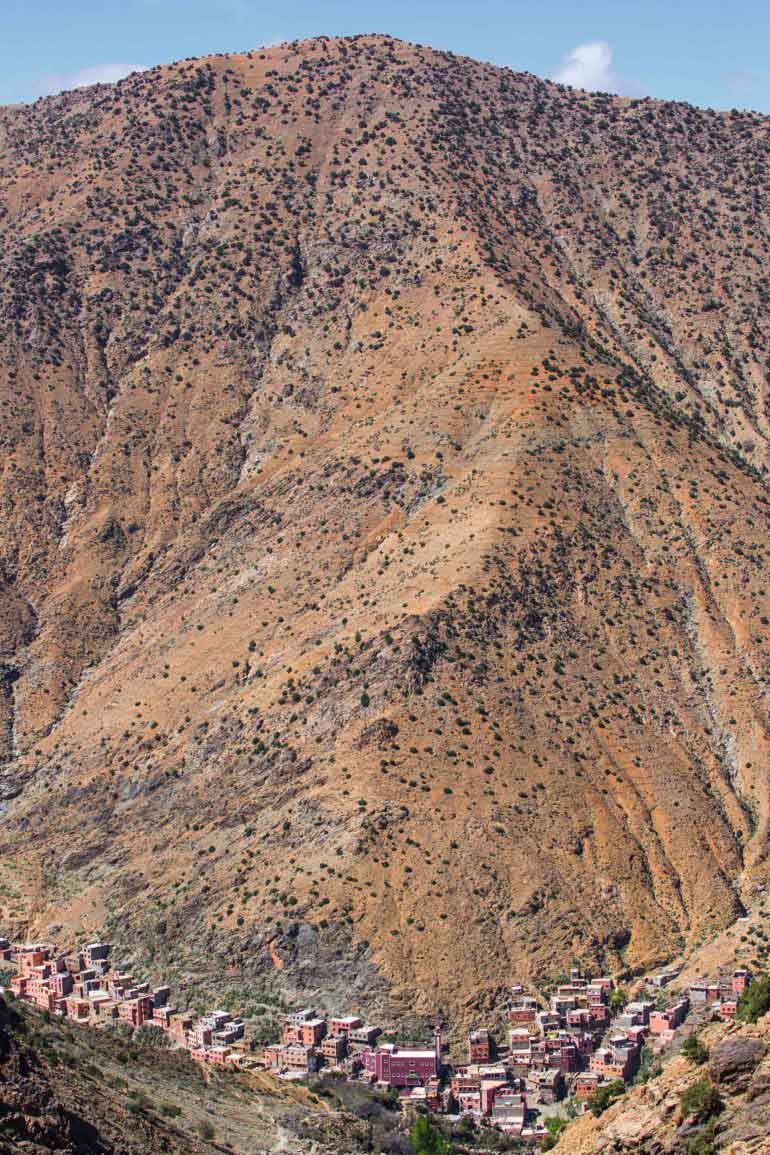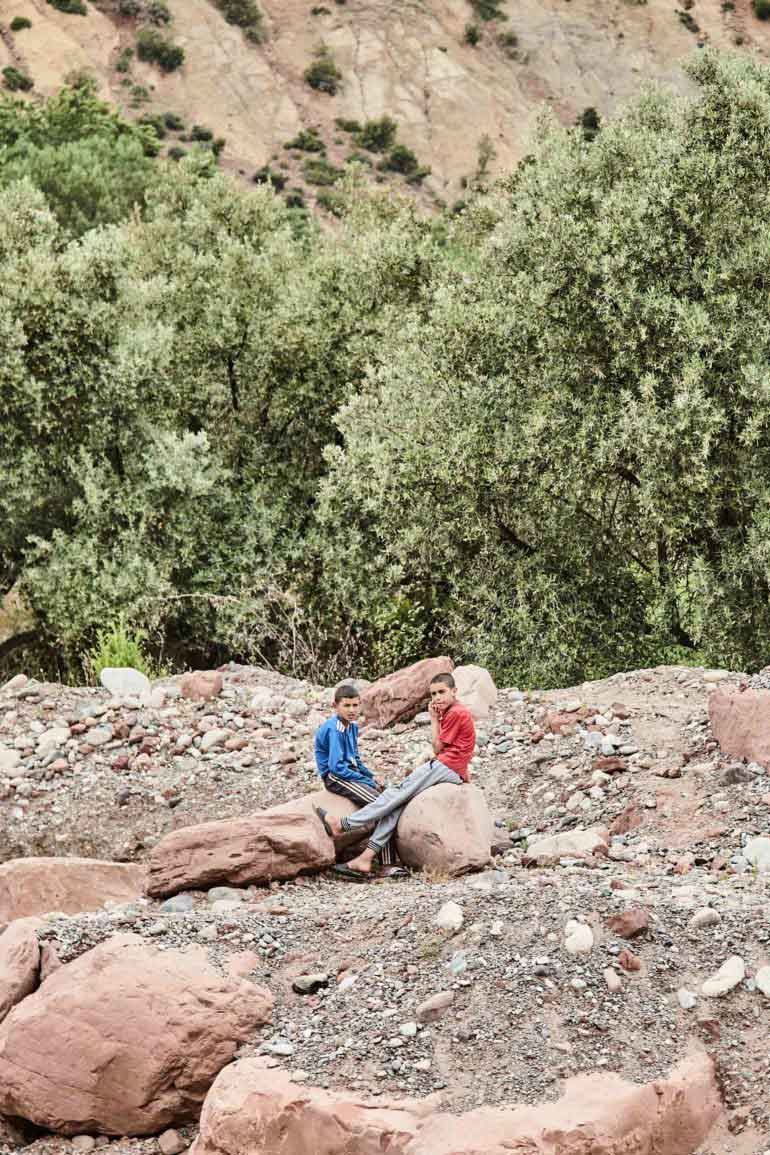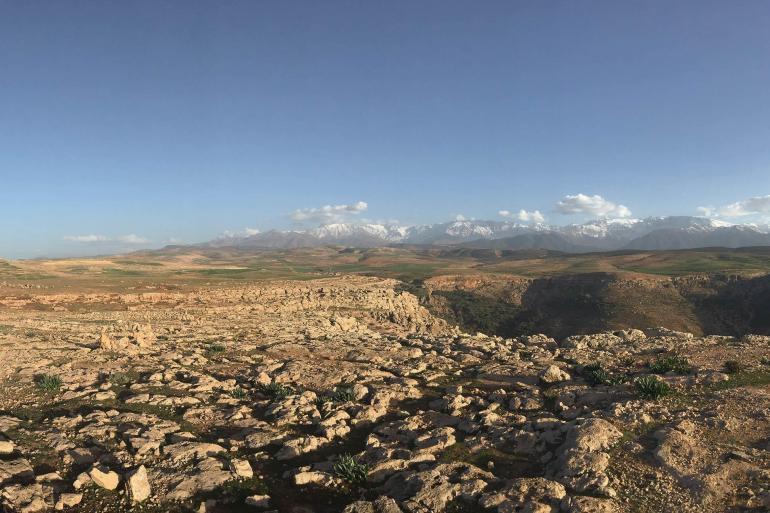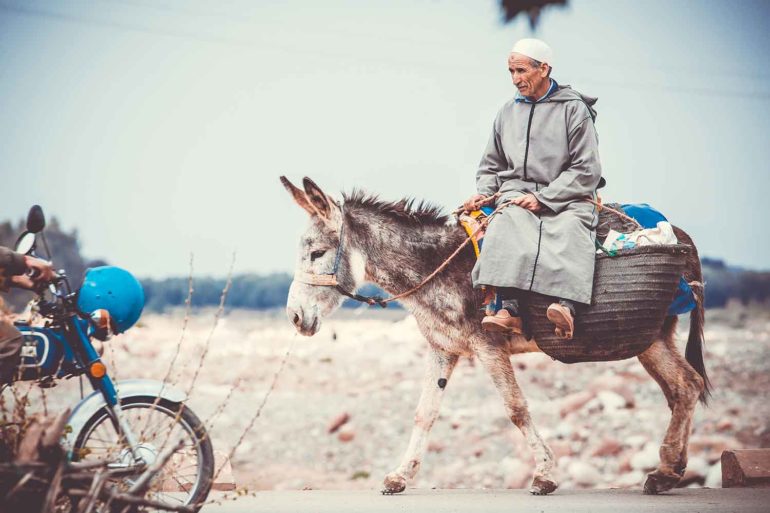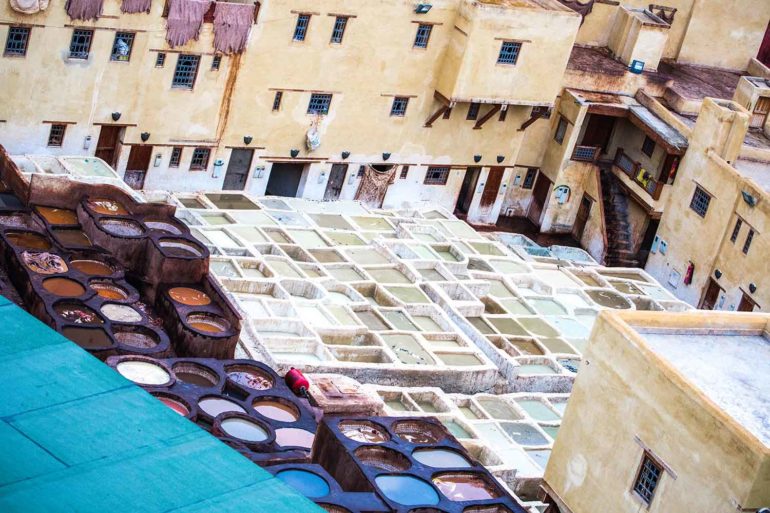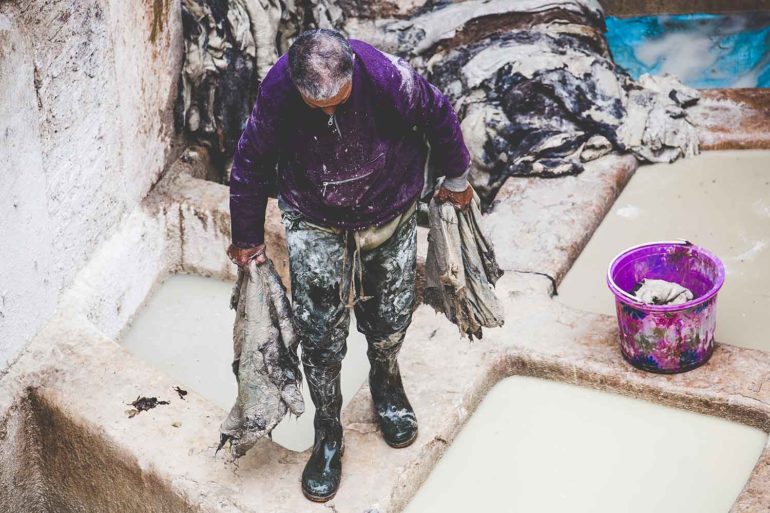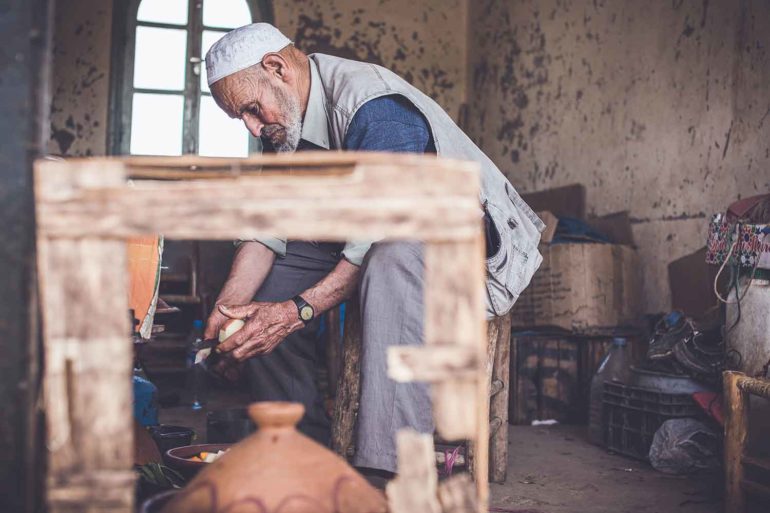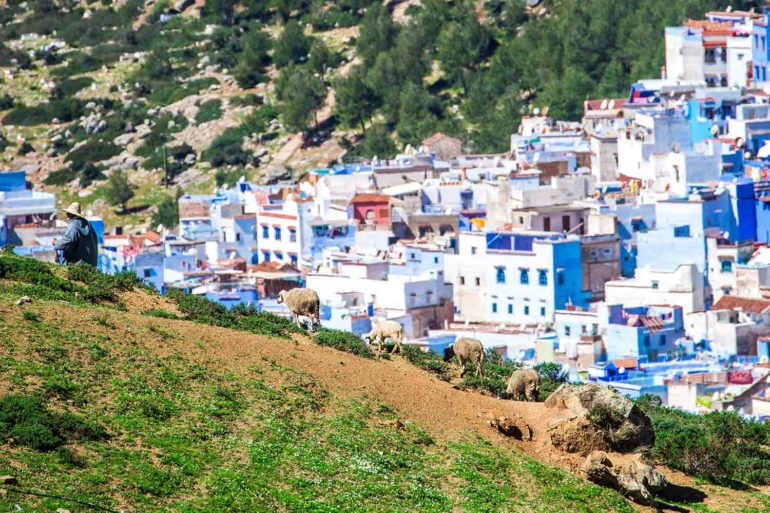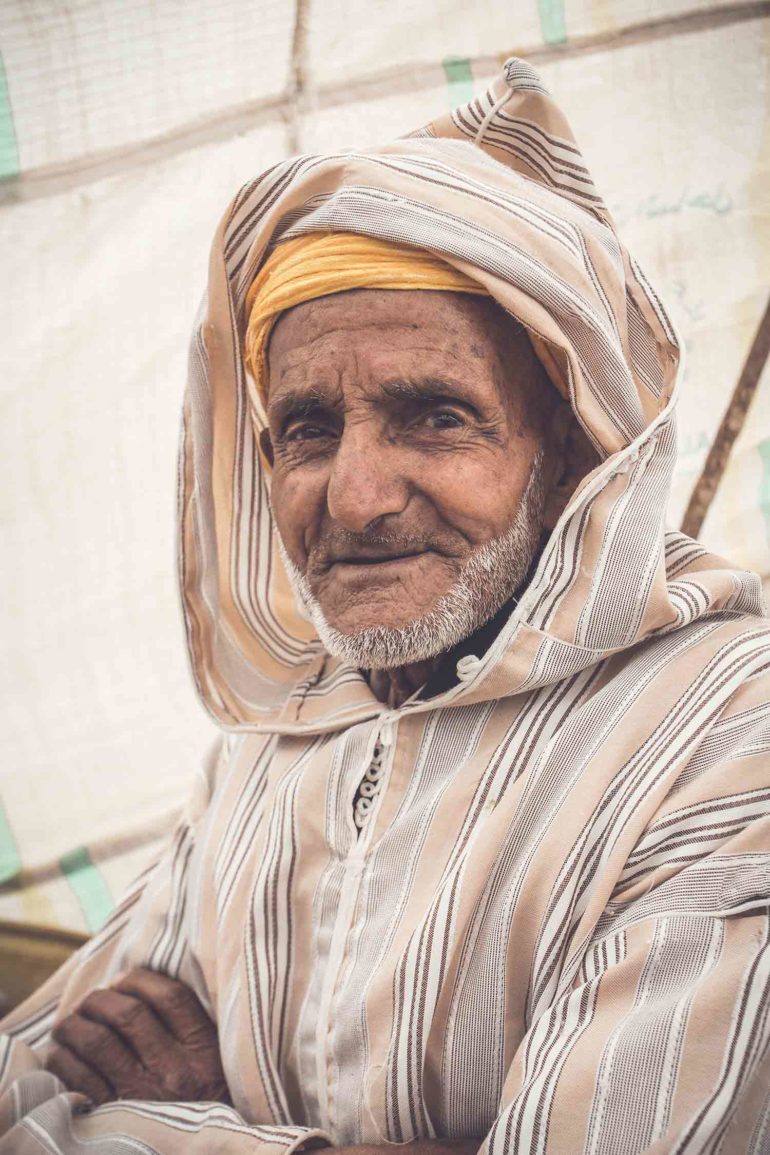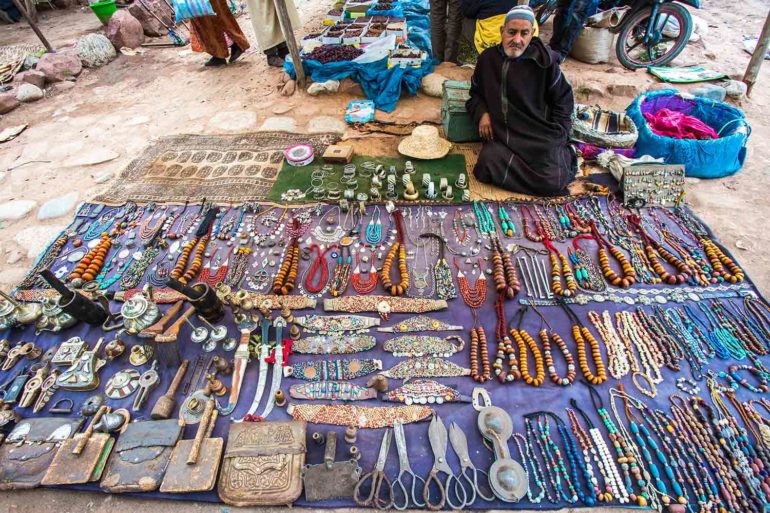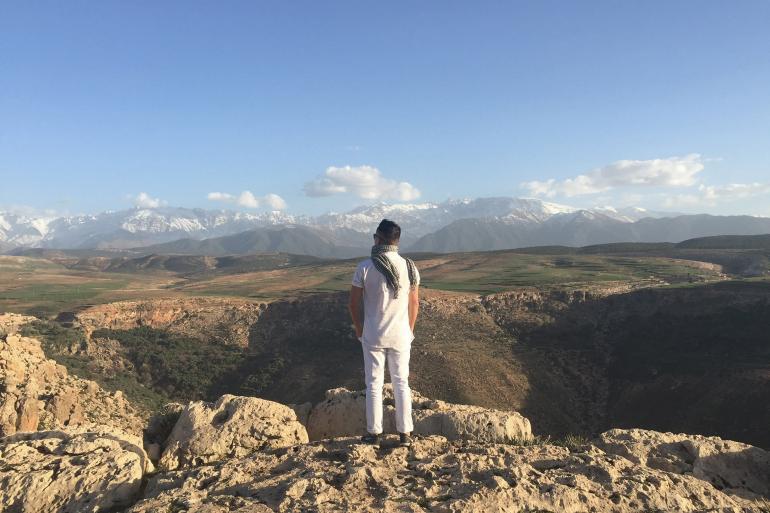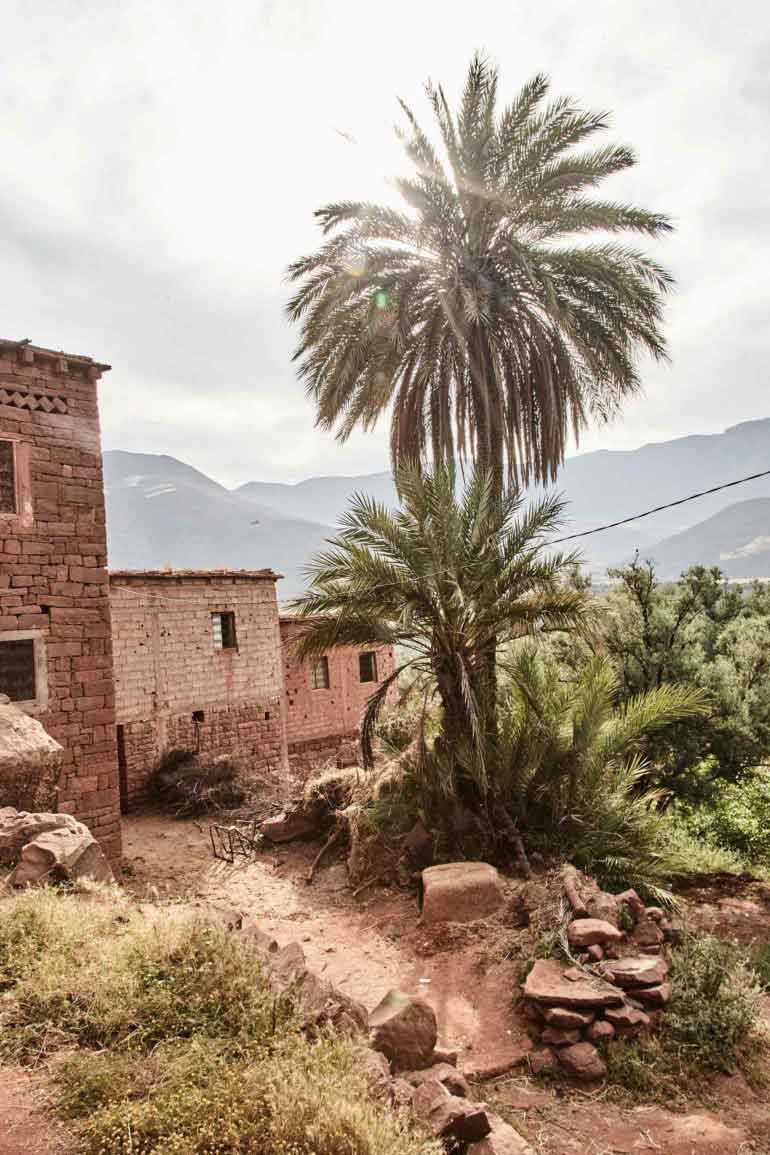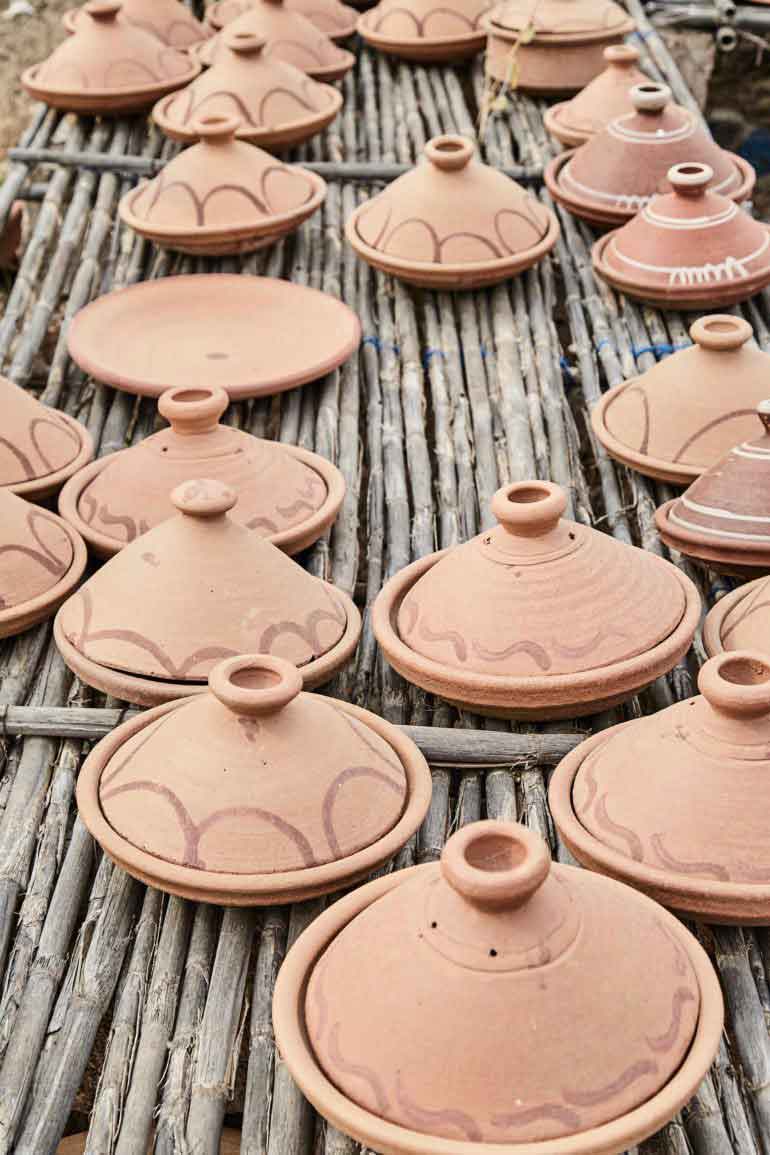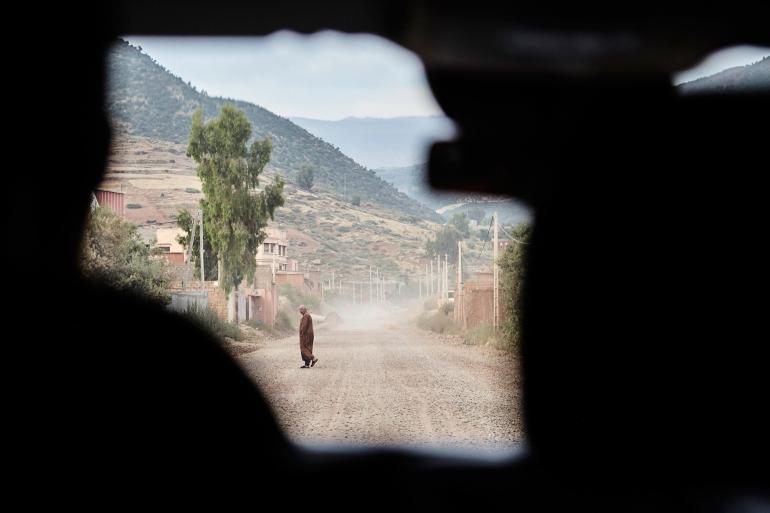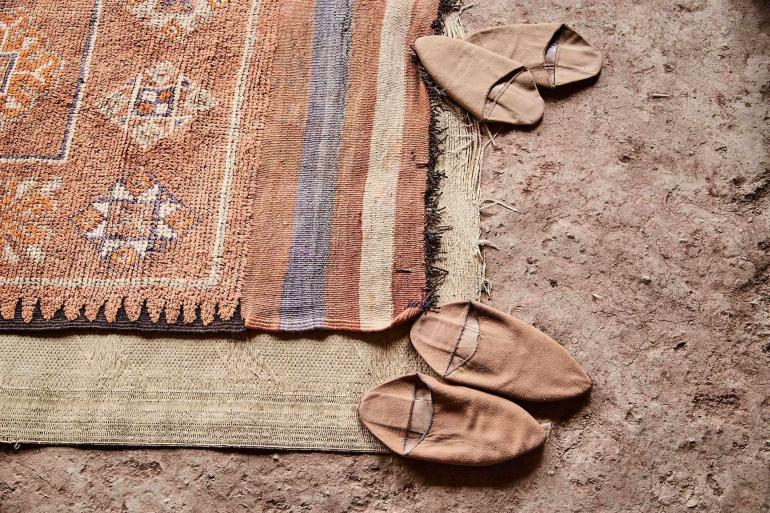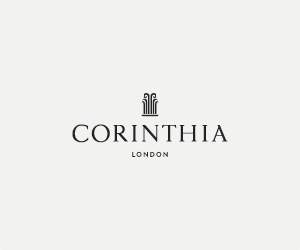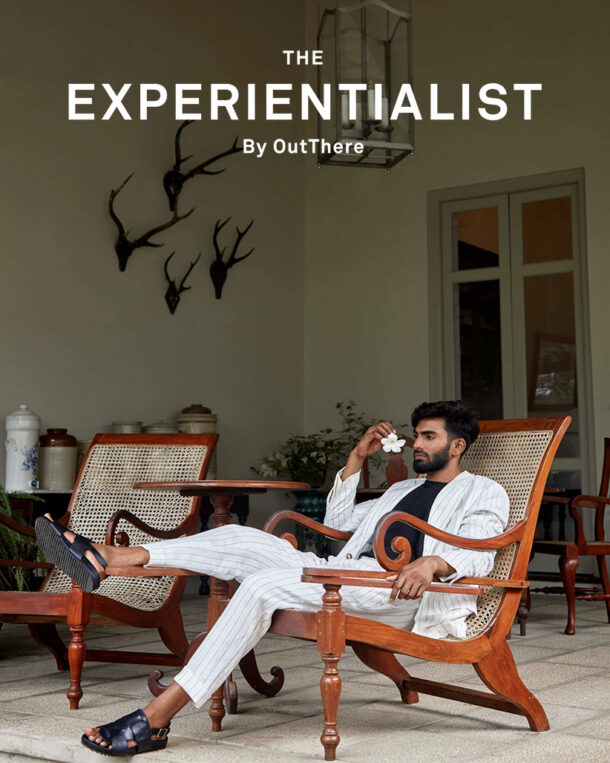I feel that things are different here in the mountains than in Marrakech. While there is no doubt that tourism is key to the economy of the mountain people, at least here it feels like there’s a way of life that is being fervently and adoringly preserved. It’s not an easy way of life either, beneath what looks to me like paradise – a lush, green valley, dramatic rock-faces and romantic, weathered red-clay villages – it really is rugged terrain and there’s not much variety, even for the industrious. Pottery and agriculture are about all there is going here and the most basic needs, like running water and power, weren’t available here until recently. But yet, the Berbers have been resourceful and self-sufficient – and as tough as life can be, they produce some beautiful bounties – olives, oranges, lemons, almonds and prized saffron for the stomach, and deep and meaningful culture for the soul. Plus there is
great willingness to extend the hand of hospitality to passing visitors, something they’ve done for centuries.
You see, ‘Berberism’ is not just about where you come from and where you’ve been as a people, but where you are now and what you are doing to exist today. Being a Berber is an ethnic and cultural movement of indigenous nationalism and the survival of that movement is crucial. Thus, it is inherent in their culture to retain long-established traditions as an infinitely precious commodity – to be traded and passed on to future generations.
Saalah points out the tapestries that adorn the walls of the house. Each tells a story, and Berber women would lovingly weave them to pass on to their children in their transition from adolescents to adults. They’re majestic pieces of art, with each colour and pattern carrying significant meanings – and woven together, they tell stories. The stories seem to carry a common cautionary tale – that the world of an adult Berber is difficult and sometimes painful, that life throws up many possibilities, both happy and sad. That death is certain. That family means everything. That you must pass on the stories of your past and most importantly, live in the moment.
In today’s more connected world, these life lessons become all the more complex. It’s a very common story in such communities and inevitable that even in the most traditional of Berber societies, a modern education has become an important pathway to affluence. Capitalism, making it big, thriving in the city – what seems on the surface to be very much the antithesis to the natural Berber life order, is one that is increasingly sought after.
Our driver and chaperone for the day is another inspiring, self-made Moroccan. Charaf learnt English through his love of hip-hop music, which no doubt accounts for his cool swagger, and streetwise brogue. He spent his teenage years buckling down at school, but when he wasn’t studying, he was writing down lyrics to songs even if he had no idea what they meant. He’d then use a dictionary to work out the meaning, word for word – at first with hilarious consequences as he hadn’t quite realised how much profanity featured in the genre. As he grew older and honed his English skills, he combined his love for driving cars with his passion for speaking English by taking tourists on 4×4 adventures in the rugged Moroccan countryside. He became so good at his trade that when the Four Seasons, who have a reputation for being the best at everything, opened in Marrakech, they had to snap him up to be their in-house excursionist.
But despite his clearly urban attitude, his soul, much like Saalah, is in the mountains. He speaks passionately about the undulating landscapes and the spots around Marrakech that he loves. For him, Marrakech was a ticket out of his village, but it is really the Atlas Mountains and the Ourika valley that speaks to him. We talk about his job, and how while he loves the interaction with guests from all over the world, he misses going off-road and finding those truly special places. His eyes light up when I suggest that we do so. It turns out that not many people ever ask him to go off plan and off the beaten track. Just me and Katy Perry, apparently.
Charaf takes me to some special, spellbinding spots in the Ourika Valley to help be imbibe in the Berber spirit. We take in Setti Fatma, a river-side town where after a strenuous hike to enjoy a series of seven waterfalls, we cool our feet in the Ourika river while sipping mint tea, or ‘Moroccan whiskey’ as they call it here. Around us, holidaying Moroccan families from the coast can be seen taking in the waters with us. Charaf tells me that the Ourika is the number one staycation destination for Moroccans from other cities – they too adore the mountains and do all they can to come here.
Lunch in a Berber house (tagine, of course) is followed by a long drive. The beauty of the region is almost indescribable, from some viewpoints it’s like the Swiss Alps. From others, it’s like the rolling hills of Wales, or the olive groves of Greece, or the apple orchards of Somerset back home in the UK – all with road signs in French and Arabic. The landscapes get progressively greener and the air purer as we drive. The spring colours of the valley are dazzlingly beautiful. We pass by majestic kasbahs and plenty of wizard-like men herding sheep. We turn off-road to Charaf’s favourite spot, a place that was once, millions of years ago, below sea level. He points out the barnacled landscape to prove his point and picks out a large rock to sit on, as the sun sets in spectacular fashion over the Ourika valley. And just as I think that things couldn’t get more magical, he hurries me back into the car and drives off like a daredevil over the terrain to a slightly lower elevation where we watch the sun continue to dip behind a large lake in an explosion of twilight hues, just as a village mosque calls out a magical Mahgreb.
The mountains are calming, spiritual almost. It is so easy to see why the Berbers are really at one with the Atlas. On the drive back, Charaf tells me about some of the guiding Berber philosophies. Collectively, it sums up what being from the Atlas is all about, and the values and culture that its people hold so very dear.
That gratitude and happiness are derived from what you have in life, not from that for which you yearn; that you must always treat a guest generously and selflessly; that charity begins at home; that you must always share what you have; to always respect your elders; to treat your neighbours like an extension of the family; and to always have an open-door value of acceptance of others.
Beautiful. If only we all came from the mountains.
Uwern was a guest of the Four Seasons Marrakech, who arranged this full-day Atlas excursion with their in-house experience team.He also stayed at the magnificent La Sultana.
Photography by Martin Perry, David Edwards, Abstract Minded Photography and Uwern Jong
Get out there
Do…
… experience at least a day out in the Atlas Mountains and Ourika Valley to understand what moves the people of Marrakech. Consider staying overnight if you can. There is a range of lovely properties, some super luxurious.
… keep your wits about you in the Medina. It’s more frustrating than unsafe, but there’s no point tempting an opportunist.
… always negotiate with a taxi driver or get your hotel or riad to do so before stepping into the car. It’ll save a lot of hassle at the end of the trip. At time of press, anywhere within the Medina is 50 Dirhams.
Don’t…
… blow your top if you get hustled in the city. It will inevitably happen, over and over again. It’s pretty much a sport among locals and it’s amazing how even the most seasoned of travellers can fall for it. A common scam is to tell you that the place that you’re headed to is closed, or an offer to take you on a tour. A firm, polite, “No, thanks,” does wonders.
… change your money into Moroccan Dirhams when you arrive in the country. The rate in the city is far more favourable than that back home.
… give up on Marrakech because of its rough-and readiness – it’s all part of the city’s charm.
At OutThere, we believe in boundless travel. But we understand that some destinations can pose challenges to travellers that complicate visiting them. We advise all visitors to inform themselves about local legislation and customs, and to work with a trusted travel provider in order to ensure a safe and pleasant holiday.


